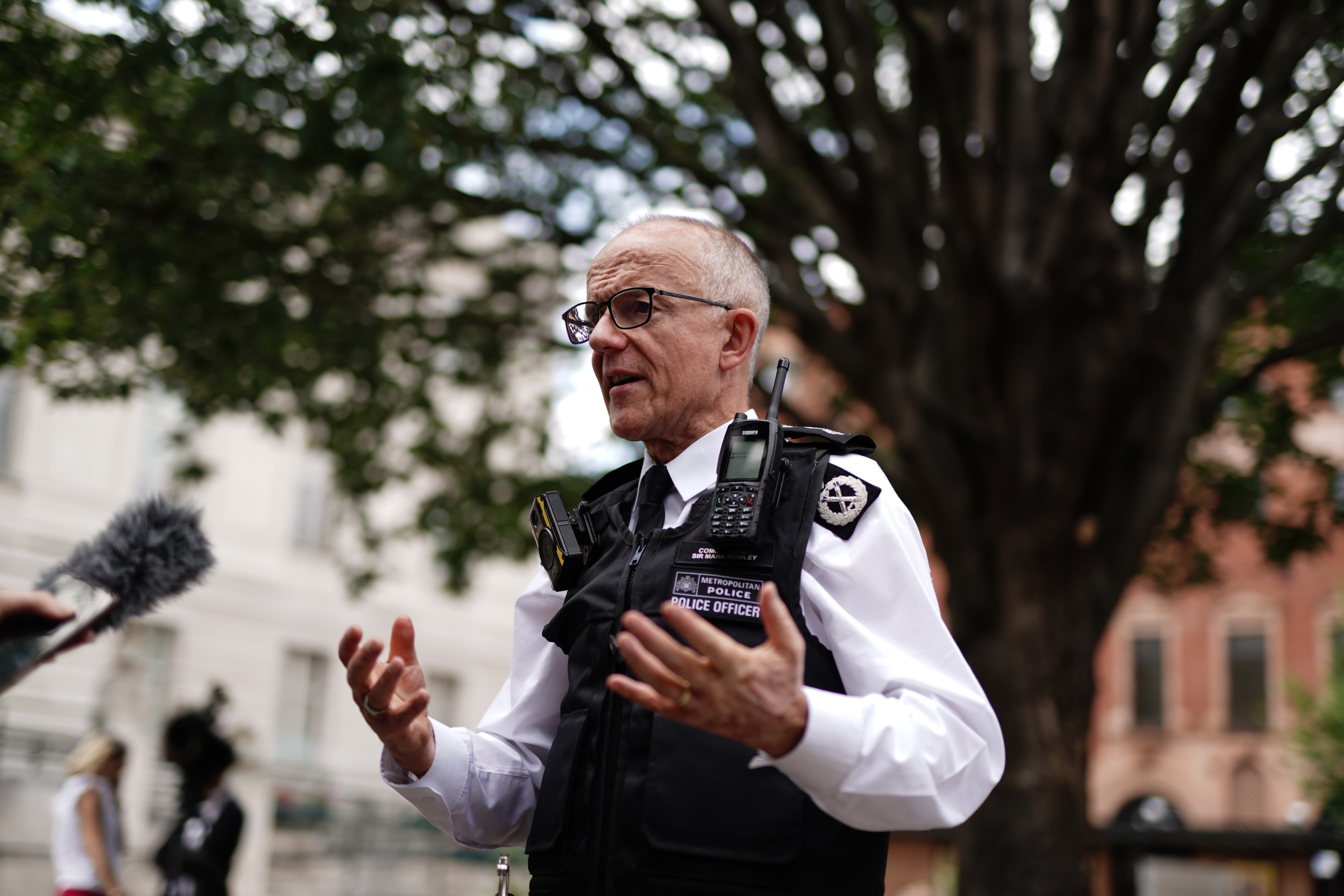What will Suella Braverman’s crackdown on corrupt police officers mean for law and order?
The home secretary has announced new powers that will allow chief constables to sack officers found guilty of misconduct. But, asks Sean O’Grady, will they make any difference?


Even by her own busy standards, the home secretary, Suella Braverman, has been having a bit of a hyperactive week. Fresh from some far-fetched proposals to deal with the small boats crisis, she has also proposed that the police investigate all crimes (less reasonable and practical than it sounds), along with yet another tightening of the law on machetes and “zombie knives”; signalled fresh legislation to force offenders to face juries (after the outcry at the behaviour of Lucy Letby); and now, rather belatedly, says she will give chief constables the power to fire corrupt officers.
Under new rules, police officers found guilty of gross misconduct will face automatic dismissal; and all officers who fail vetting can be sacked. It is, though, far from clear how these measures will boost the government’s miserable poll ratings.
What is Braverman going to do about corrupt police officers?
After the notorious cases of Wayne Couzens and David Carrick, among others, it became clear that police officers accused of serious breaches of trust and criminal offences were being protected by an unduly cumbersome and lenient disciplinary procedure. The then recently appointed commissioner of the Metropolitan Police, Mark Rowley, whose own force has suffered most from the loss of public confidence, pleaded with ministers to give him the power to effect a clean-up.
More recently, his call for action was echoed by six former home secretaries from both parties, of varying disciplinary instincts, including Michael Howard, Ken Baker and David Blunkett.
Now Braverman says: “Corrupt police officers, and those who behave poorly or fail vetting, must be kicked out of our forces. For too long our police chiefs have not had the powers they need to root out those who have no place wearing the uniform. Now they can take swift and robust action to sack officers who should not be serving our communities.”
So it’s good news?
Yes, though the obvious objection arises that the procedures to protect citizens from rogue officers should never have been so lax in the first place. The public have rightly been shocked to learn how easily “bent coppers” could survive in such circumstances, sometimes with the connivance of their colleagues and a system seemingly rigged in their favour. The impression, politically, is that the Conservatives, having been in power for 13 years, didn’t do enough about this while they had the chance.
But isn’t Braverman fixing things now?
The home secretary’s default response to any challenge is to pass a law, even when a given activity is already illegal. The possession and carrying of massive knives, and offensive weapons generally, has been unlawful for many years; the latest move is simply to make specific and explicit the prohibition of certain kinds of terrifying blade. Handily, from Braverman’s point of view, it comes just as disturbing images of youths wielding such knives at the Notting Hill Carnival have featured prominently in the media. But they were illegal anyway.
Will the new laws work?
Not necessarily. If passing laws were all that was required to make the nation safe and secure its borders, then the UK would be the most secure country on earth; Braverman, as a consequence, would also be the most effective politician of her generation. As we know, that is unfortunately not the case, and the public have long since realised the limits of such tactics, favoured as they have also been by Braverman’s hardline predecessors, Priti Patel and Theresa May.
Fresh acts of parliament, a recruitment drive, and announcements about “crackdowns” do not compensate, for example, for the loss of 20,000 experienced officers during the Cameron-Osborne austerity era, or for the chronic underfunding of the criminal justice system. The voters can see this perfectly well.
The Tories are still the party of law and order, though?
Not really. Four years ago, when Boris Johnson was up against Jeremy Corbyn, the Conservatives were thought (according to YouGov) to be the best party on crime by 35 per cent against 18 per cent for Labour, with 25 per cent saying “none” or “don’t know”. Now the two main parties are tied at 22 per cent, with 33 per cent opting for none/don’t know. Thus Labour hasn’t been able to make much capital out of Tory failures, and public opinion is looking dangerously disillusioned on the whole issue – which usually suggests promising territory for the extreme right.
Braverman, despite her angry, vindictive ways, hasn’t yet managed to harness that public nihilism to personal or party advantage. Nor, to be fair, has Lee Anderson, vice-chair of the party, with his excited support for hanging. The Conservatives these days look like an unreliable lost cause, even to the hangers and floggers. This is not encouraging in the run-up to a general election.
Join our commenting forum
Join thought-provoking conversations, follow other Independent readers and see their replies
Comments
Bookmark popover
Removed from bookmarks